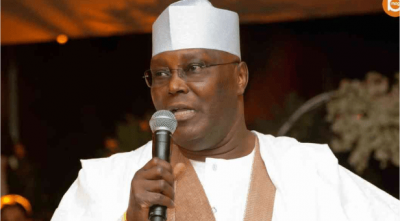
The PDP candidate told The Africa Report that federating units once had considerable control of their resources, unlike the current federal laws that only allow 13 percent derivation for states in the Niger-Delta, where Nigeria’s sweet crude is extracted.
Although Mr Abubakar acknowledged the appropriate sharing formula might be difficult to say at this point — suggesting it would depend on ‘negotiations’— he recommended a limited role for the federal government in appropriating crude revenues.
Nigerian states “can get more because in the First Republic the regions had 50/50,” Mr Abubakar told The Africa Report in an interview published Wednesday. “I don’t mind giving even 100% […], but I would tax those states to maintain the federal government.”
But the former vice president recognised this is “not advisable at this stage of our development.”
“Even during the First Republic there was this derivation sharing between revenues and resources, or between the regions and the federal government. So I think we could have a middle course. It would be unfair to ask me for specifics; that will depend on negotiations,” he added.
Of all the presidential candidates for the 2019 election, Mr Abubakar has emerged the most vocal advocate of restructuring, an ideological standpoint that canvasses more powers for states at the expense of the central government.
He believes Nigeria’s subsisting Constitution, which recommends a federal system but implements a unitary one, should be urgently reviewed and replaced with a sovereign document that would engender a more peaceful and economically viable nation.
Oil revenues still account for over 80 percent of the Nigerian government’s revenues as of 2017, according to the National Bureau of Statistics, despite efforts towards economic diversification.
In the face of a floundering agriculture and services sector, reducing the federal government’s share of oil revenues to only taxes paid by about nine oil-producing states could be difficult to achieve soon.
“It is a good thing that the former vice president said he cannot go ahead with giving the Niger-Delta total control of oil income right now,” Busola Odukoya, an economist, told PREMIUM TIMES Thursday morning. “The only problem here is that it could cause some people in the region to resume violent agitation for resource control, especially if Mr Abubakar is elected.”
Ms Odukoya said it would be difficult to predict any negotiation that would result in allocating up to or more than 50 per cent of crude earnings to the states.
“Apart from the offshore oil revenues which the government in Abuja can easily control, the crude lifting within states’ borders in the Niger-Delta cannot be shared even 50/50 with the centre,” the economist said. “The negative impact on some states in the northern or central parts of the country can only be left to imagination.”
“You have to allow decades of regular economic growth, some of which I have seen the candidates talk about this year, before you can be thinking of cutting oil revenues from federal government,” she added.

